Julian Eaves reviews Jeanine Tesori and Brian Crawley’s musical Violet now playing at Charing Cross Theatre.
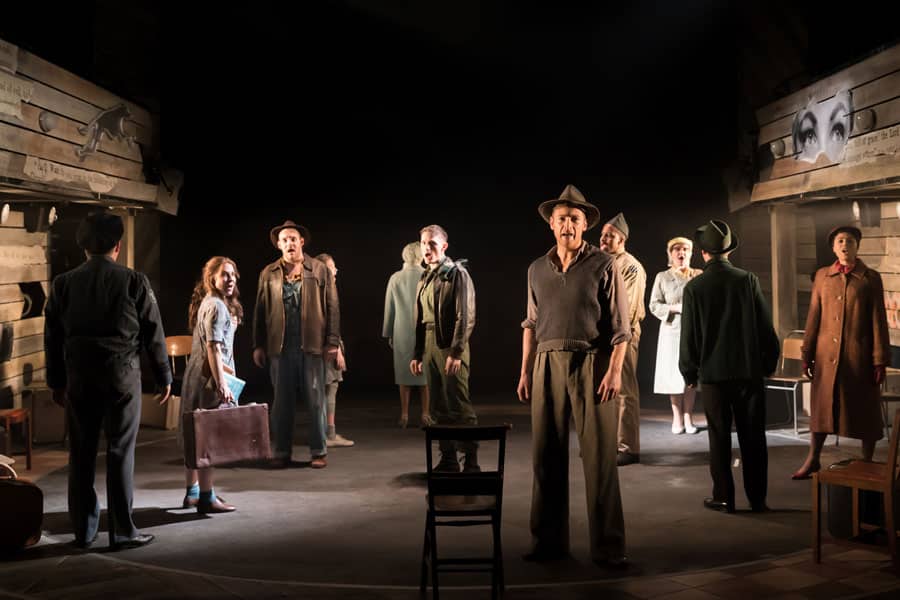
Violet
Charing Cross Theatre,
21st January 2019
4 Stars
Book Now
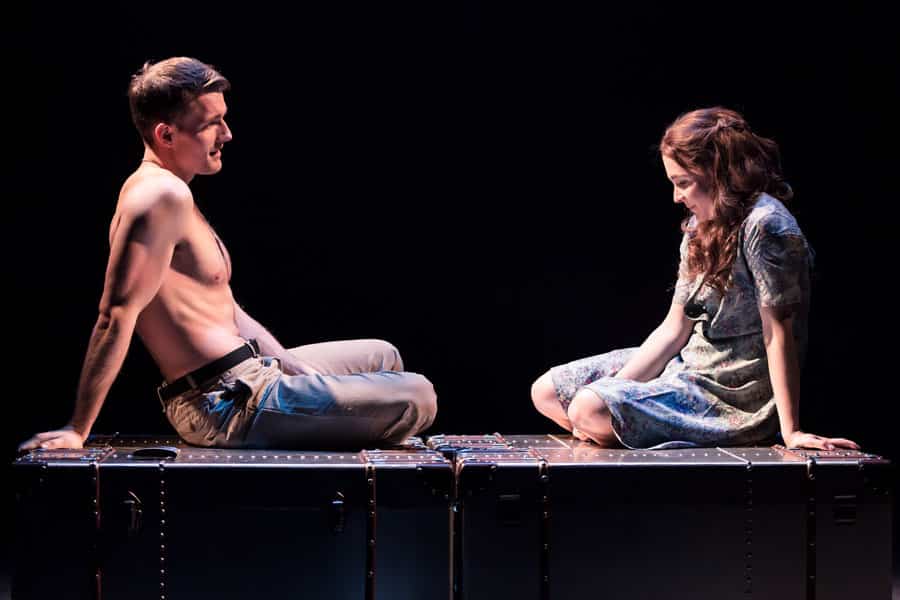
The main prize here, without any question, is the astonishingly lovely and tuneful score by Tesori: it is a riot of gorgeous melody and vibrant rhythms, and is given spectacularly rich orchestrations by Rick Bassett, Joseph Joubert, Buryl Red and Jason Michael Webb, played by band of 9 comprising keys, guitars, strings and percussion, all directed with masterful elan by Dan Jackson. The vocal arrangements for the cast of 12 are even more delicious, and make the most of the fine singing by this handsome line-up, allowing it to shine and glow in the show’s splendid choral numbers (just wait for the final chorus: you won’t want it to stop!).
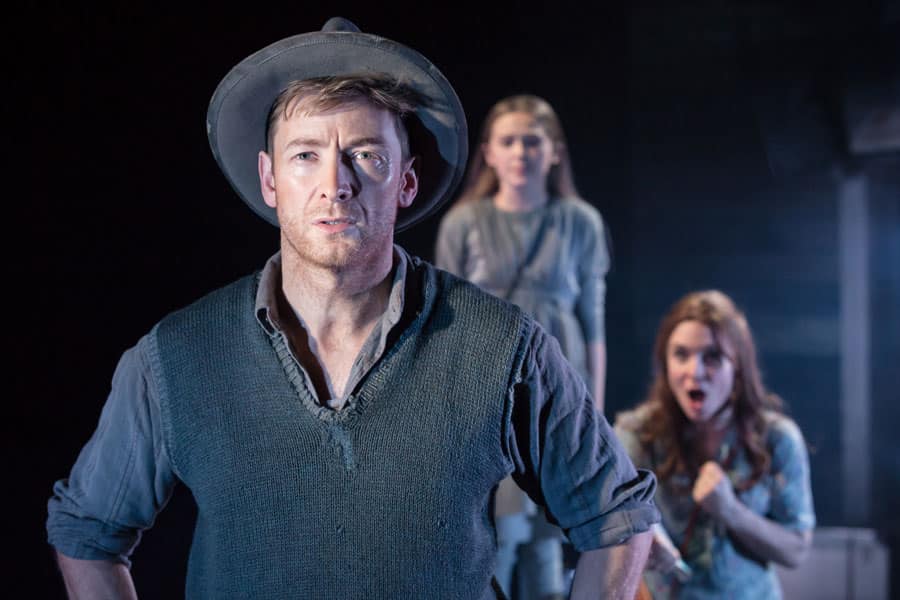
Morgan Large is entrusted again here with the design of the work-a-day, wooden-clad performing environment, and his addition of a revolve to the now off-centred in-the-round stage area is inspired: this makes the most of the few pieces of miscellaneous stage furniture and provides a much-needed sense of animation in a story that is – after all – about a journey. A bus journey: from Spruce Pine, North Carolina to Tulsa, Oklahoma in a Greyhound bus, following the desperate and passionate pilgrimage of the disfigured title character as she tries to find the balm of transfiguration through her faith. It’s an odd tale, an adaptation of the work of academic and short-story-writer, Doris Betts. One might be tempted to think of other musicals based on picaresque journeys (Candide’s, for instance), and to reflect on how tricky they are to make work: how their protagonist always seems to be slipping away from us.
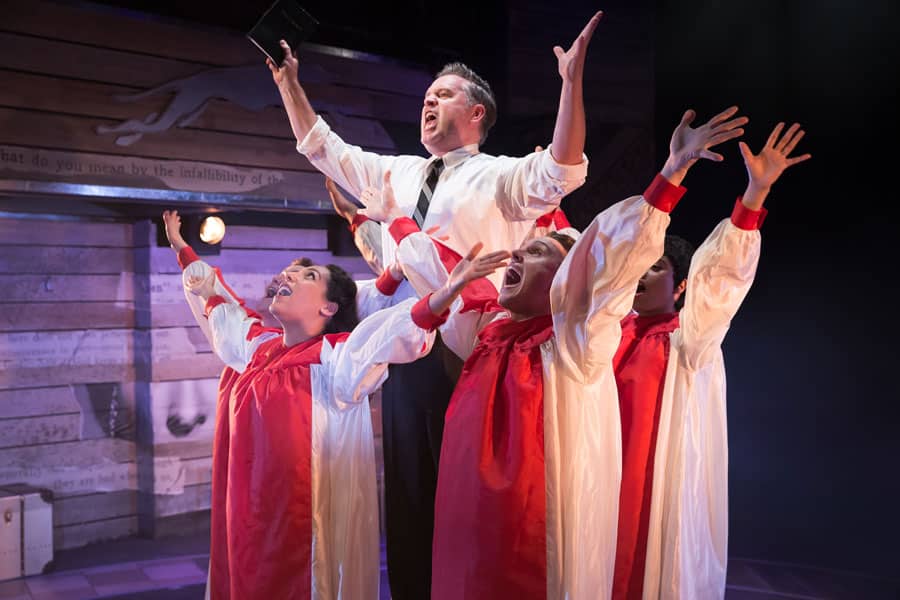
In lesser hands, this one might so easily not come off, but leading actress, Kaisa Hammarlund is every bit a match for the role’s many potential pitfalls, and, investing it with every ounce of her energy and spirit, does as much as anyone could to make you believe in this sad and lonely woman, struggling to come to terms with the legacy of childhood facial damage and her bitter resentment of the father who maybe let it happen and the drunken surgeon who did too little to reconstruct her appearance. Yes, it is another story about how women are victims of powerful – and flawed – men. And the purpose of the play does seem to preach at us, telling us how bad this is and how awful we should feel about it.
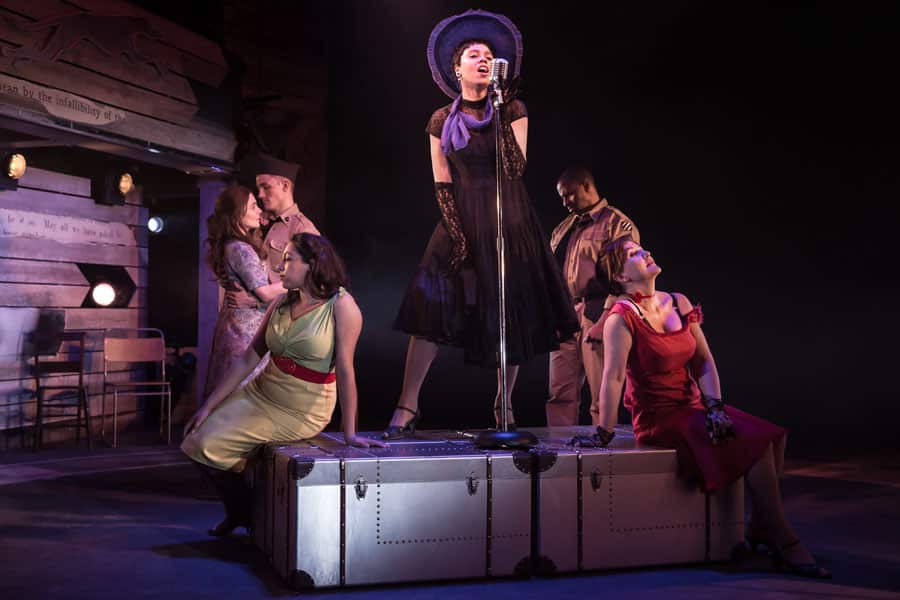
That’s all well and good as a mission, perhaps, but it does not create much in the way of real theatre. Indeed, this show has been consistently criticised for its weaknesses in characterisation and the wooden implausibility of its presentation of the various relationships wheeled out for our forensic scrutiny. Those problems remain here, for all that director Shuntaro Fujita (from Osaka) does everything conceivable to keep things on the move, distracting us as much as possible from noticing, not infrequently at the cost of missing the dramatic beats of the story and cutting out audience engagement at times when – surely – the point should be to stimulate it. Cressida Carre does the same with her choreography (although we see too little of it, and what there is doesn’t get a chance to stretch its wings properly). And the cast pour considerable volumes of artistry into their other parts.
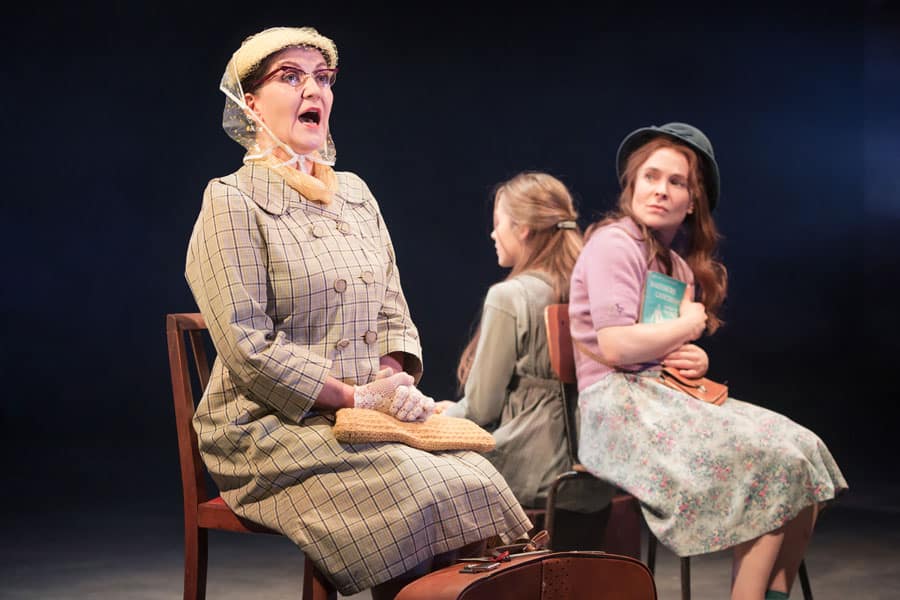
The other cast members have an ever harder time of it, with less and less substance to conjure with: Keiron Crook is an earnest Father; Kenneth Avery Clark strains his utmost to find the humour in Crawley’s dourly flat lines as the Preacher – if only the director would help him more – there is precious little else to smile at in this sad story; the terrific Simbi Akande and Angelica Allen are outrageously under-used in their successive appearances as Lula and the Music Hall Singer (and I thought this show was supposed to be about empowering women?). House regular James Gant does another officious cameo as Leroy, Danny Michaels is a tellingly intense Billy Dean and Janet Mooney puts as much focus as she can into the Old Lady and the Hotel Hooker. (Yes, this is NOT a script that shies away from stereotypes!) But pride of place among the secondary roles is surely that of Young Violet, whom we saw at Press Night taken by the game and gamin Amy Mepham, who grew noticeably in stature through the evening, finding a convincing voice. Her role is a far more appealing one than Crawley’s other child female star, the one he created for Jonathan Lippa’s ‘Little Princess’. Nonetheless, for so much of the time we seem to be treading again not so much where the grapes of wrath have been squelched, but over the so-familiar territory of any number of southern gothic tales, from ‘Key Largo’ to ‘The Rainmaker’ to, again and again, ‘The Wizard of Oz’.
